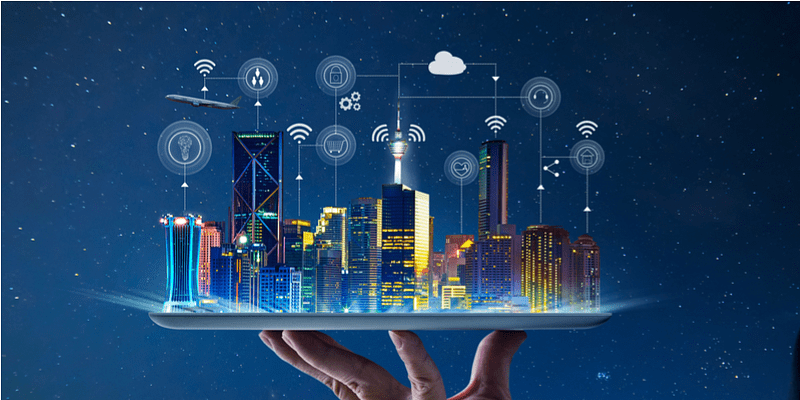
As technology evolves, our physical surroundings are undergoing a profound transformation. Enter the era of smart spaces, where technology and environment blend to usher in a new age of connectivity, efficiency, and convenience.
The global smart space market—projected to grow at a CAGR of 17.9%—is poised to reach $19.2 billion by 2024, and it’s more than just smart homes. Let’s dive into what smart spaces are all about and their promising future impact.
The essence of smart spaces
Smart spaces are real-world settings where technology seamlessly integrates with our daily lives, creating immersive and interactive environments that foster connections between people, processes, and services.
While the term might conjure images of voice-activated assistants like Alexa and Siri, the scope of smart spaces extends far beyond personal devices, including digital workplaces, connected factories, smart homes, and more, and they are set to revolutionise how we live and work.
Growth catalysts
Several factors are propelling the smart space market’s rapid ascent. The proliferation of IoT and AI technologies is optimising energy and space utilisation, ensuring safety and enhancing ease of operation. Environmental concerns and greenfield projects are also pushing for more sustainable and efficient solutions. The rise of smart cities, coupled with the advent of 5G, is further accelerating the market’s growth.
Efficiency and sustainability
One of the remarkable features of smart spaces is their ability to save energy by dynamically adjusting heating, cooling, and lighting in real-time based on weather conditions and occupancy. It reduces carbon footprints and cuts costs, as these systems can be remotely monitored and controlled, minimising the need for on-site interventions.
Moreover, smart spaces empower supervisors to identify and address problems proactively, preventing costly repairs and inconveniences. These spaces also incorporate surveillance and security systems that enhance safety, making them secure places to live and work. Features such as sensor alerts for equipment availability add to the convenience of these environments.
The workplace revolution
Workplaces are experiencing a significant transformation, thanks to smart spaces. As technology evolves, the next generation of workplaces is expected to involve seamless human-machine collaboration. This revolution is driven not only by technology but also by changing workforce demographics.
Smart spaces enhance the efficiency of physical workspaces through simplified layouts, smart lighting, automatic temperature control, and gadgets that foster collaboration. These advancements boost staff productivity and also make the organisation more attractive to top talent—a crucial factor in today’s competitive job market.
A host of other advantages
Smart spaces offer a multitude of advantages. Firstly, they lead to significant cost savings by enabling the remote management of components, thereby reducing inspection expenses and costs associated with making changes and updates. Additionally, they contribute to a greener planet by allowing for remote control of building elements, effectively lowering the carbon footprint.
Moreover, smart spaces prioritise risk reduction through early detection and prediction of errors within their environment. This proactive approach helps prevent potential infrastructure issues, ensuring the seamless operation of intelligent spaces. Lastly, smart spaces enhance security by integrating advanced security features, offering peace of mind to employees and residents who benefit from the heightened safety measures in place.
Conclusion
Smart spaces are not just a buzzword, they are the future of how we interact with our surroundings. These spaces will simplify our lives and lead us toward a more sustainable and efficient world.
As they become an integral part of public and office spaces, the transformation they bring will be hard to ignore. Brace yourselves for a future where the boundaries between technology and reality blur, creating a world where our environment truly works for us.
Sujit Patel is the Managing Director and CEO of SCS Tech
Edited by Suman Singh
(Disclaimer: The views and opinions expressed in this article are those of the author and do not necessarily reflect the views of YourStory.)










